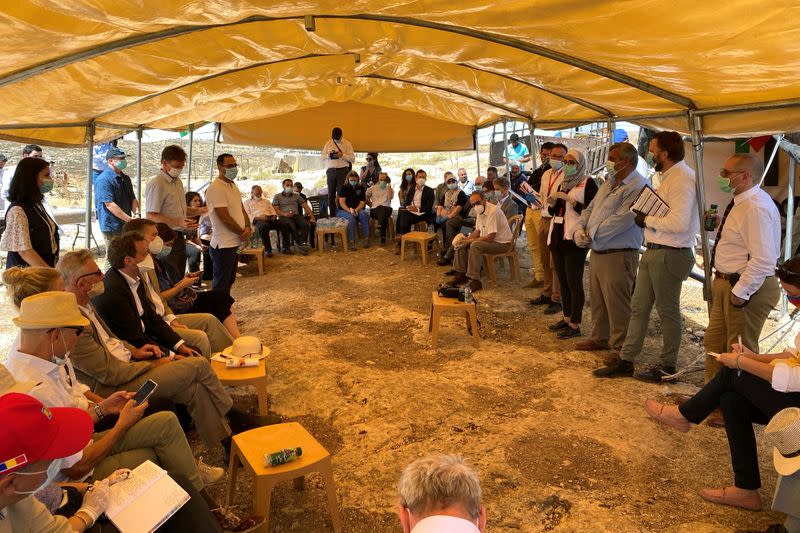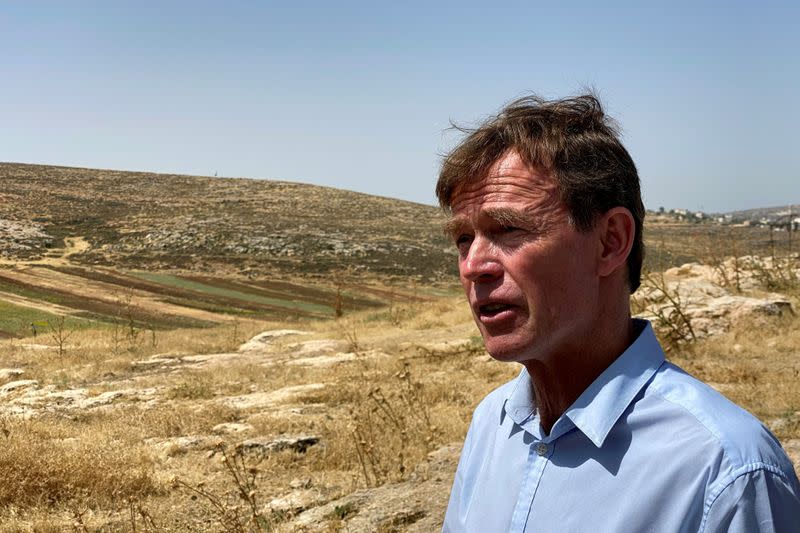Israeli minister says still no consensus with U.S. on West Bank annexations
JERUSALEM (Reuters) - Israeli Prime Minister Benjamin Netanyahu has yet to bridge gaps with the United States and his main coalition partner over his pledged annexation of parts of the West Bank, a cabinet minister said on Thursday.
The remarks by Tzipi Hotovely, the minister of settlement affairs, pointed to difficulties Netanyahu could face in implementing the move in the occupied territory soon, with a formal cabinet debate on the issue due to begin on July 1.
In line with a peace plan announced by U.S. President Donald Trump in January, Netanyahu has said he intends to extend Israeli sovereignty to Jewish settlements and the Jordan Valley in the West Bank.
Palestinians seek the region, along with Gaza and East Jerusalem, for a state of their own.
They have called for international sanctions against Israel, and Arab and European countries have voiced concern over unilateral territorial moves that could jeopardise a two-state solution of a decades-old conflict.
"There are gaps between the Americans and us on this issue and between us and our senior partner in the unity government, Blue and White," Hotovely told Army Radio, referring to the centrist party headed by Defence Minister Benny Gantz that has called for a broad international dialogue on the matter.
Sven Kühn von Burgsdorff, who heads the European Union's delegation to the Palestinian territories, said that annexation "if it happens, will have consequences for the relationship between Israel and the EU".
He did not spell out what those consequences might entail during a visit with other diplomats to an area of the West Bank where Israel has pledged to apply its sovereignty.
Palestinians have rejected Trump's plan, which envisages statehood, but with Israel keeping most of the settlements it has built on land captured in a 1967 war.
A committee of U.S. and Israeli officials is drawing territorial lines in the West Bank under the Trump proposal.
"There is still no agreed map on this issue. It has to be agreed by parts of the (Israeli) government and by the American side," Hotovely said.
A U.S. official said the coronavirus crisis had made it difficult for all members of the mapping committee to convene.
Most countries view Israel's settlements on occupied land as illegal. Israel disputes this.
(Reporting by Jeffrey Heller and Dan Williams in Jerusalem, and Rami Ayyub in the West Bank; Writing by Jeffrey Heller; Editing by Nick Macfie)










